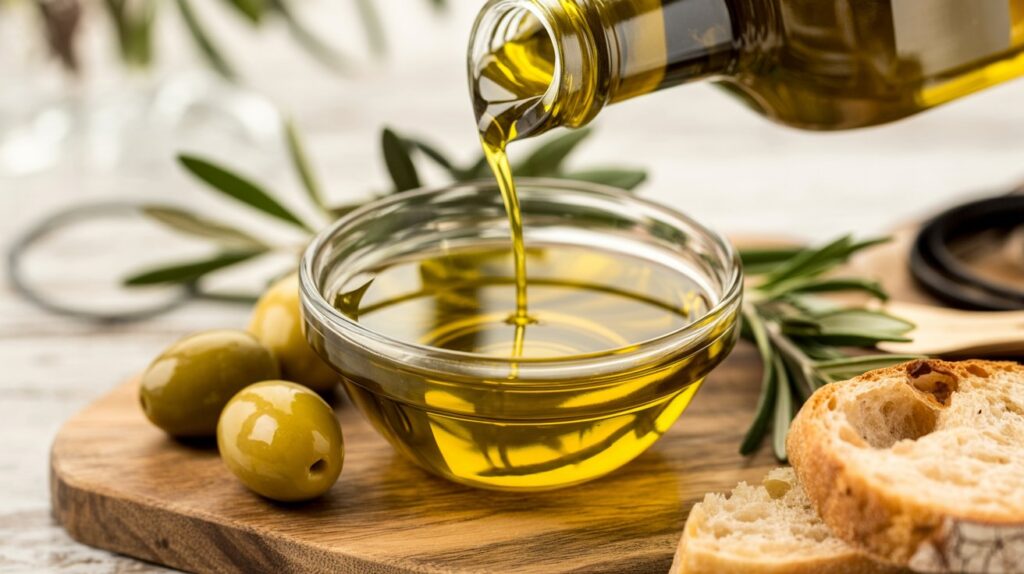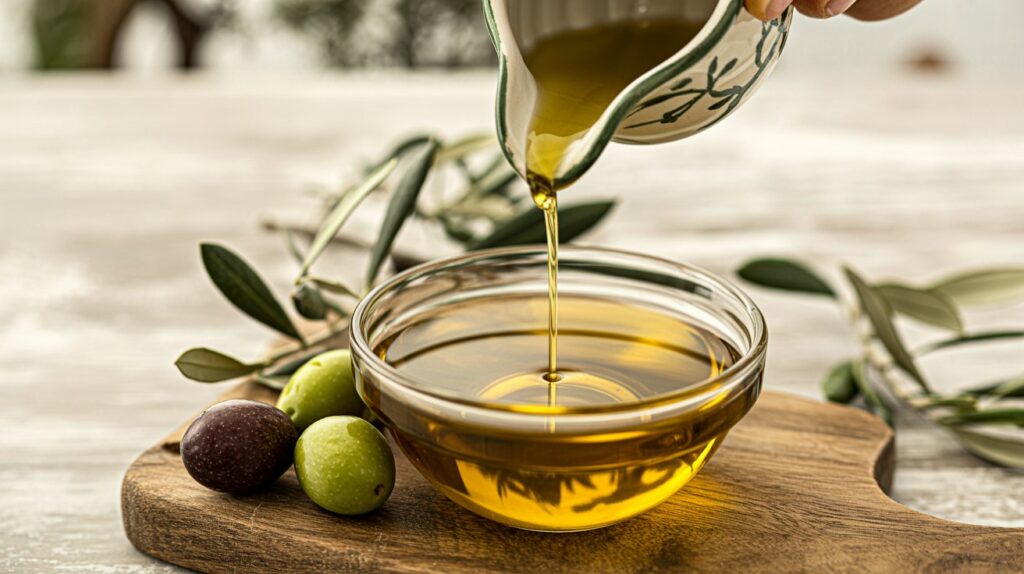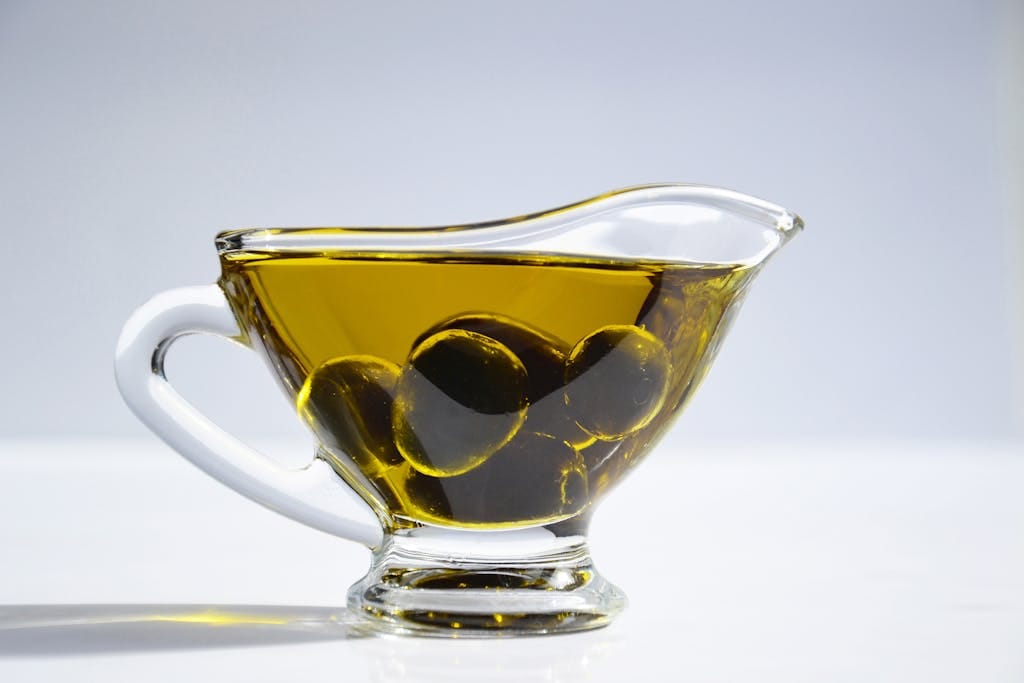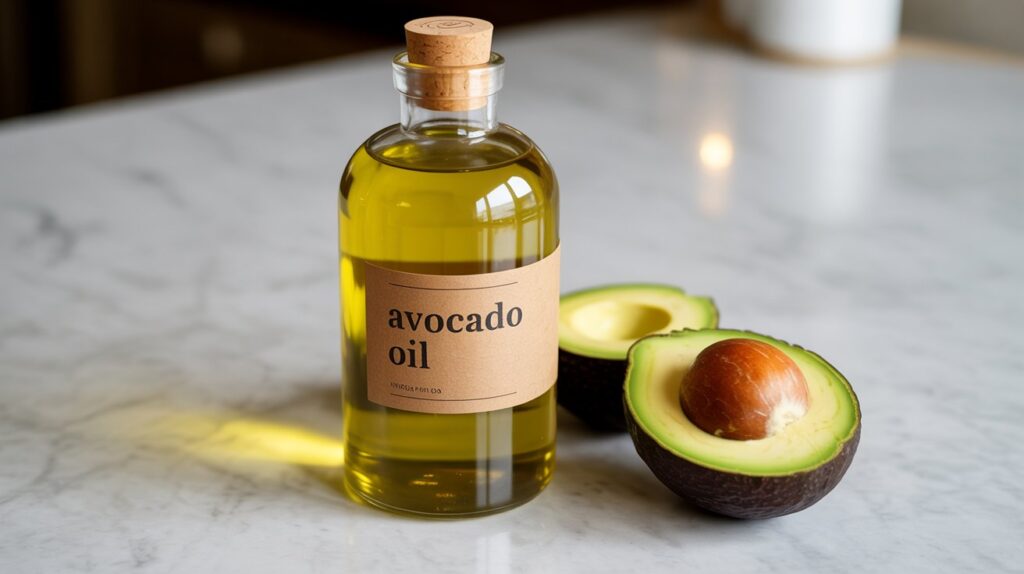Is Olive Oil a Seed Oil? Many home cooks and health-conscious eaters want to know: Does olive oil fall into this murky “seed oil” territory? The response is simple: No, olive oil is not a seed oil. It is in fact a fruit oil, derived from olives as opposed to their seeds.
But the story is far bigger than this. Learning the distinction among olive oil and seed oils can help you choose better fats for cooking — and for your health.
What Are Seed Oils?
Oils are obtained from plant seeds by industrial processes often including high temperatures and innocuous chemical solvents. Common seed oils include:
- Canola oil
- Soybean oil
- Sunflower oil
- Safflower oil
- Corn oil
- Cottonseed oil
These oils are heavily processed that go through refinement, bleaching, and deodorizing to finally transform into the product we see in the store. This high heat process can remove natural nutrients and may contain dangerous compounds.
What Makes Olive Oil Different?
Olive oil is made by pressing the pulp of olive fruits, not their seeds. So at a basic level, they’re simply not the same, which influences everything from how they’re produced to what they contain nutritionally.
Simple Extraction Process
And “mechanically pressed” (read: juice squeezed from olives) extra-virgin olive oil. No solvents or heat is needed. This gentle refinement process remains true to the oil’s natural state, with flavor and antioxidants (polyphenols) intact — qualities lost in overly processed oils with harsh chemical treatment.
Rich in Healthy Fats
“Seed oils are high in omega-6 fatty acids and can contribute to an inflammatory state if consumed in excessive amounts, whereas most of the fat in olive oil is monounsaturated. These can provide healthy fats to lower bad cholesterol and promote heart health.
Hidden Health Benefits of Olive Oil
Pure olive oil is a step up from these processed seed oils:
Cardiovascular Support: The monounsaturated fats found in olive oil have been shown to help maintain healthy cholesterol levels and support heart health.
Antioxidant Power: Included in extra virgin olive oil are natural antioxidants such as vitamin E and polyphenols, which help cell and DNA damage and deterioration.
Anti-Inflammatory Effects: With the exception of oils derived from seeds (like soy and canola) which can cause inflammation, olive oil has compounds that have ant-inflammatory effects in the body.
Olive Oil for Hair Care: Olive oil isn’t just great for recipes in the kitchen—it also can be used for a home remedy as well. Chock-full of nutrients including vitamin E, antioxidants and healthy fats, olive oil can nourish and strengthen hair from root to tip. It’s especially good for fighting dryness, taming frizz and yes, adding shine to hair.
A teaspoon in the mouth each day will do wonders as will a small amount warmed and applied to your scalp and hair, massaged in and left for 30 minutes before washing out properly. Many others even mix it into an at-home hair mask (like with honey or yogurt) for an added boost of hydration. Selecting organic, premium olive oil, you guarantee your hair the best care possible.
Greater Heat Stability: Contrary to what many believe, extra virgin olive oil has a smoke point high enough for most cooking techniques — sautéing and roasting, even.

The Mysterious Olive Oil Quality Factor
Here’s where it gets shady: not all products that say olive oil on the label contain only olive oil. Food fraud in olive oil is common; it is estimated that 70-80% of local productions are adulterated or mislabeled.
Common Adulteration Practices
Some makers cut olive oil with cheaper seed oils such as soybean, sunflower or canola, yet still call it “olive oil.” This practice:
- It reduces some of the health benefits that you are expecting from olive oil
- Can expose you to the seed oils you are trying to avoid
- Provokes Allergic Reactions to Some User If you have allergic, be cautious.
How to Tell if Olive Oil is Real
Some signs of quality to shop for include:
- Look at the Harvest Date: Legitimate producers will list the date when the olives were pressed, rather than a sell-by date. opt for oils that have been pressed in the past 12-18 months.
- Read the Ingredients: The label should say only “olive oil” or “extra virgin olive oil” — and nothing else.
- Think About the Source: California olive oils certified by the California Olive Oil Council often meet more stringent standards than imports.
- Trust Your Senses: True extra virgin olive oil will smell fresh and grassy, and should be slightly peppery. Fake oil may be flat, greasy, or simply have no smell.
- Price Check: The more delicate the oil, the more it can cost to make high-quality olive oil. Suspiciously cheap “extra virgin” oil should bring out your inner detective.
Baking with olive oil vs. seed oils
Is it Safe to Deep Fry with Olive Oil?
While olive oil withstands most cooking temperatures, deep frying is where it begins to lose its grip, more due to cost than safety. A neutral oil with a modest amount of monounsaturated fat, such as canola or grapeseed oil, also works here, whereas regular olive oil (as opposed to extra virgin) has a high enough smoke point for this hot-heat cooking.
Does Olive Oil Have Omega-3?
Olive oil has small quantities of omega-3 fatty acids – not as much as in fish oil or flax seed oil. Its main benefits are monounsaturated fats and antioxidants.
Differences Between Virgin and Extra Virgin Olive Oil

Extra virgin is the best grade, and it’s made with the first pressing of olives and no chemical processing. Pure olive oil might have some flavor or aroma defects, but it is still produced with the help of chemicals.
FAQs
Is olive oil better for you than vegetable oil or seed oils?
Yes, olive oil also tends to be better for you than refined seed oils (thanks to its superior fat profile, antioxidant content, and lighter processing).
How do I know if my olive oil is pure?
Seek out harvest dates, single-ingredient labels, the right certifications — and trust your senses; pure olive oil should smell fresh and taste a bit peppery.
How should I store olive oil?
Keep olive oil in a cool, dark place out of direct heat and light. The oil is kept safe from light damage in dark glass bottles or tin containers.
Can you cook with olive oil?
Absolutely. For sautéing, roasting and dressing, use extra virgin olive oil. Conventional olive oil can be used for higher-heat cooking.
What are the different types of olive oil?
The key grades are extra virgin (highest quality), virgin and regular olive oil. For the most flavor and health benefits, opt for extra virgin.
Does olive oil expire?
Olive oil doesn’t quite “expire,” but it can lose its flavor.Once opened, olive oil gets stinky within a year. Does olive oil go bad? It does lose flavor and nutrition over time; it is usually good for 18-24 months after harvest.
Can people with allergies safely eat olive oil?
Is olive oil gluten free? Yes, pure olive oil is definitely gluten-free. But adulterated oils still may contain allergens, such as hazelnut oil, that can cause reactions.
How do I know what olive oil should smell and taste like?
Good olive oil should smell fresh, grassy or fruity, and taste similar, possibly with hints of pepper and a bit of a bite, all indicators of beneficial polyphenols.
Make the Healthier Choice

Olive oil stands apart from seed oils in every significant dimension – from being a fruit in nature to its gentle extraction and its great nutrition density. When you opt for the real deal — genuine, high-quality olive oil rather than processed seed oil — you’re investing in better flavor and better health.
And don’t forget to check for quality indicators such as harvest dates, appropriate certifications and single-ingredient labels. What you taste is the difference – you’ll KNOW you’re treating your body to one of nature’s best when you find oil like this – pure and all natural, just as it is.
Pass this along to the home cooks who are trying to make more enlightened choices when it comes to their cooking oils. We can all learn together what truly satisfies our bodies and our families!



